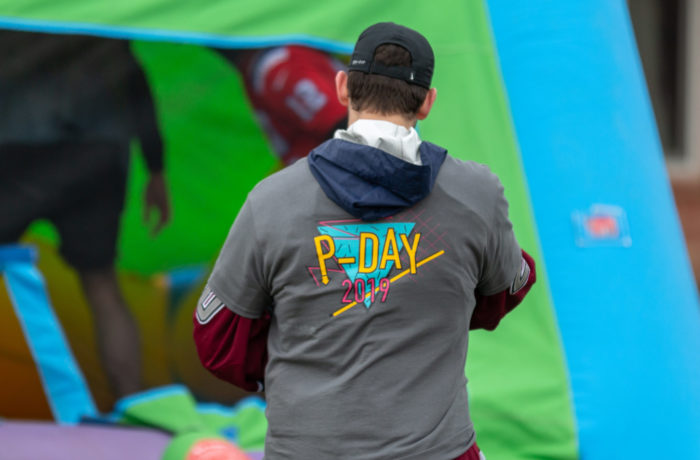By Eva Wilton
On a windy December afternoon on Church Street, 40 St. Michael’s College students hosted a global AIDS rally with their voices repeating the phrase “People with AIDS are dying, the time is now.” The students held this event in hopes of gaining local political attraction to the global AIDS epidemic and to raise awareness in the Burlington community.
AIDS continues to be a major global health issue and in 2016, 1 million people died from HIV-related causes globally, according to the World Health Organization. The African continent is the most affected region, with 25.6 million people living with HIV for almost two thirds of the global total, according to the World Health Organization.
At the Church Street rally, students were repeating the phrase ‘90,90,90’. UNAIDS introduced the 90-90-90 plan that the AIDS epidemic could be reversed if three targets are met by 2020. The first target is that 90 percent of all people living with HIV will know their HIV status, and of those individuals 90 percent will receive sustained treatment called antiretroviral therapy and 90 percent of those receiving antiretroviral therapy will be responding so well to the drugs that it will be virally suppressed, according to UNAIDS.

The Student Global AIDS Campaign (SGAC) is a nationwide organization with a diverse student movement that is committed to the global fight against AIDS, according to the website.
In 2002, St. Michael’s College introduced a chapter of SGAC. The group’s most important event of the year is the world AIDS rally which is held on World AIDS Day, December 1 said Nicole Skaluba ’18, SGAC member for three years. This is the final event of the global AIDS week that the group hosts.
“SGAC believes that awareness is not our primary focus, rather to change policy. We want to get drugs into the hands of those contracted with HIV. That is why we are in communication with Senator Sanders and Congressman Leahy. It is to push them on increasing funding for this policy,” said Patricia Siplon, professor of political science at St. Michael’s College, AIDS scholar, and started the SGAC chapter fifteen years ago.
The aim of SGAC is to generate donor support from local politicians and national programs to help sub-Saharan African countries that hold the highest rates of AIDS.

“Awareness comes as a byproduct of being active to change local policy,” Siplon said.
SGAC members promote this by writing a press advisory and sending it to local news publications, representative for Senator Sanders and representative for Congressman Leahy, said Siplon.
The dilemma is that locally in Vermont there is a fight to increase global AIDS funding while nationally, the Trump Administration has made a proposal to cut back, said Siplon. Thus, when local Vermont politicians are hearing from a big constituant of people in their local area then, they might prioritize this issue over other issues. The SGAC chapter continues to fight for increasing funding from local politicians to raise awareness about global AIDS.
“I like that it [SGAC] is making a permanent impactful difference with political changes than simply participating in community service,” said Skaluba.


